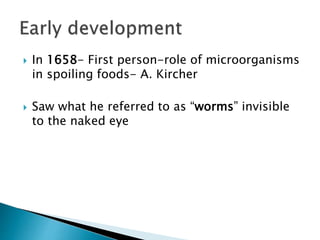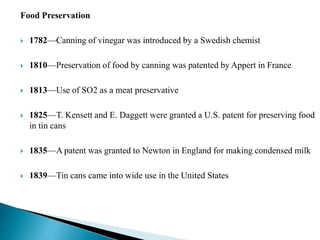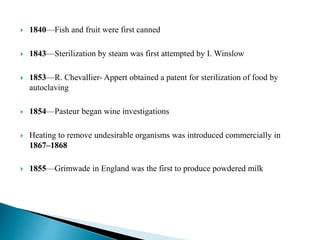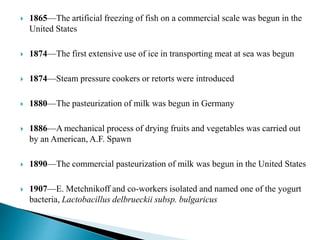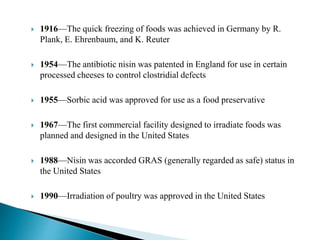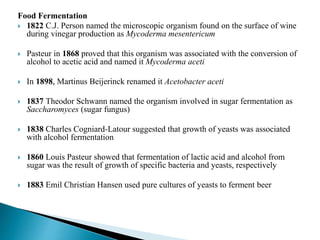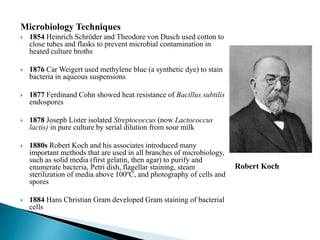The document outlines important developments in food preservation, food fermentation, food spoilage, foodborne diseases, and microbiology techniques from 1658 to the present. Some key events include Antoni van Leeuwenhoek first observing microorganisms in spoiled foods in 1658, canning of foods being introduced in the late 1700s-early 1800s, pasteurization and refrigeration being developed in the late 1800s, and microbiology techniques like staining and culturing of bacteria being established between 1854-1884.


